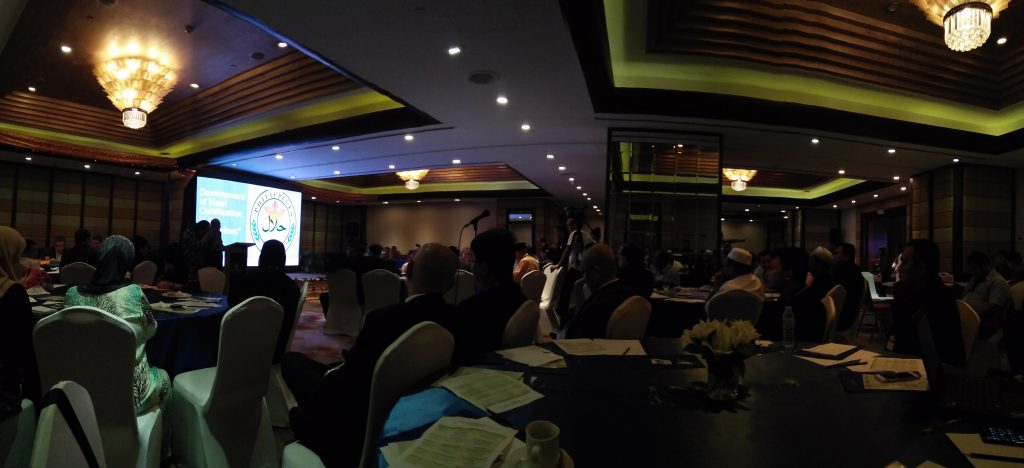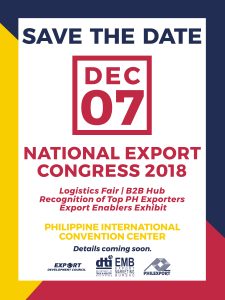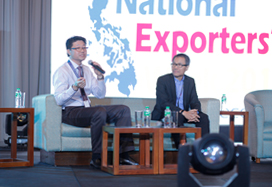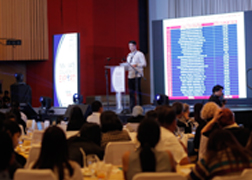 Government efforts for the development and promotion of Philippine Halal Industry are underway to tap the rising demand on Halal products and services. The halal food industry is estimated to reach 3 trillion in 2021 that can be tapped by the Philippines.
Government efforts for the development and promotion of Philippine Halal Industry are underway to tap the rising demand on Halal products and services. The halal food industry is estimated to reach 3 trillion in 2021 that can be tapped by the Philippines.
This trend provides strong but challenging opportunities for the Philippines. In 2017, the Philippines only captured P5.52 billion on revenues from halal products or 8.73% of the country’s total exports valued at P63.23 billion.
To seize the opportunities on halal markets, the Philippine Halal Export Development and Promotion Board is working vigorously on the development of Philippine Halal industry.
The Halal Board, composed of several government agencies such as the Departments of Trade, Agriculture, Foreign Affairs, Tourism, Health, Science and Technology, is tasked by Republic Act 10817 or the Philippine Halal Export Development and Promotion Act of 2016, to “formulate, advocate, coordinate, oversee and assess the implementation of the Philippine Halal Export Development and Promotion Program”.
Recently, the Halal Board launched the Philippine National Halal Certification Scheme and the Accreditation Guidelines at the 1st Philippine National Halal Conference in Davao City. The National Halal Certification scheme will serve as guiding principles in accrediting halal certifiers and enable Philippine products to be accepted as halal players in global halal ecosystem.
For its part, the Department of Agriculture formulated standards for slaughtering that must be followed by halal producers. These are standards for Feeds, Agriculture and Fishery Products, Slaughtering Practice for Ruminants and Slaughtering Practice for Poultry. An accepted standard across the whole halal value chain must be in place to meet the requirements of halal markets.
“Awareness campaign is also being done to encourage exporters to improve their products to be competitive and penetrate the global Halal market”, Halal Board Chair and Trade Secretary Ramon Lopez said during the Halal Conference. He also enjoined the academe to include halal in its curriculum and promote research and development on halal to comply with international requirements.
Halal industry can be developed beyond food particularly in tourism, pharmaceutical, travel, modest fashion and cosmetics.



 It is therefore necessary for regulatory agencies to undertake the RIA process which involves problem definition, setting the objectives, identifying options (from doing nothing or status quo to other options), impact analysis (cost-benefit analysis), comparing options, and implementation and monitoring.
It is therefore necessary for regulatory agencies to undertake the RIA process which involves problem definition, setting the objectives, identifying options (from doing nothing or status quo to other options), impact analysis (cost-benefit analysis), comparing options, and implementation and monitoring. Government efforts for the development and promotion of Philippine Halal Industry are underway to tap the rising demand on Halal products and services. The halal food industry is estimated to reach 3 trillion in 2021 that can be tapped by the Philippines.
Government efforts for the development and promotion of Philippine Halal Industry are underway to tap the rising demand on Halal products and services. The halal food industry is estimated to reach 3 trillion in 2021 that can be tapped by the Philippines.
 Professor de l’Etraz emphasized that 90% of all successful ideas today are improvements of something that already exists. He added that decision making needs to move from gut feel and instinct to data-driven decisions.
Professor de l’Etraz emphasized that 90% of all successful ideas today are improvements of something that already exists. He added that decision making needs to move from gut feel and instinct to data-driven decisions.
 Senator Gatchalian noted that the government can implement the Senate’s proposed coal tax increase once the retail competition and open access (RCOA) system is in place. RCOA is the retail competition open access in which when the consumer will be given the power to choose, to buy wherever he wants. The RCOA is one of the provisions under the Electric Power Industry Reform Act of 2001 (EPIRA).
Senator Gatchalian noted that the government can implement the Senate’s proposed coal tax increase once the retail competition and open access (RCOA) system is in place. RCOA is the retail competition open access in which when the consumer will be given the power to choose, to buy wherever he wants. The RCOA is one of the provisions under the Electric Power Industry Reform Act of 2001 (EPIRA).